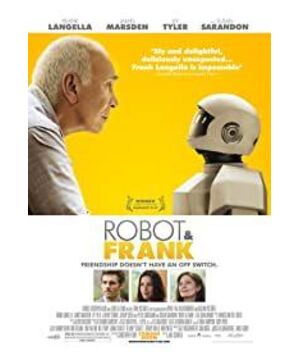The first voice and video call explained a time background with more advanced technology. However, the science fiction atmosphere in the film actually does not account for a large proportion. This segment shows us the image of a late widower, but as the film progresses and the plot unfolds, we begin to learn about Frank's life experience along with the dark lines.
1. Frank will involuntarily steal animal trinkets in the shop, similar to a daily check-in. From the response of the female shop owner, Frank's behavior should have continued for a long time.
2. Frank's daily flirt with the librarian (that is, his wife or ex-wife, of course unaware of the effects of Alzheimer's disease) makes us doubt the identity of Frank's widower, and at the same time, it also creates disagreement with the relationship between the two. untie.
3. Frank is always dictated by middle-aged people in glasses and others when communicating with his wife. One of the sentences "you are not worthy of her" is meaningful but confusing.
4. Elderly Frank and the robot partner carried out his "premeditated" stealing behavior. This segment has a large jump, which can be regarded as the intersection of the two main lines of light and dark in the film. After this segment, the film begins to take a turn.
5. From the incompatibility between old Frank and his daughter, and the content of conversations with his son lying on the bed, we can understand that in the past Frank failed to fulfill the duties of a father due to some reasons.
6. At the end of the film, looking at the photo bridge from Frank, we know that the librarian is the "mother" of the children. At this time the previous fragments began to be reassembled. Combining the above to infer Frank's young career (thief) and the consequences.
7. At the end of the film, the elderly Frank was in a sanatorium similar to a prison, and said the words "let the robot take care of the garden", which made us question the outcome of Robert. Contacting Frank’s Alzheimer’s disease brought about the approximate memory and deliriousness, and the feeling of alienation brought by many of the same models of Robert at the end, the feelings and endings between the old man and the robot are actually open.
After unraveling the dark lines, we understand Frank's sense of helplessness and loneliness as a marginalized elderly (criminal and patient), so we will have a better understanding of his emotional fetters and cognitive appeals to Robert.
The above personal views are welcome to exchange, discuss, and correct.
View more about Robot & Frank reviews











